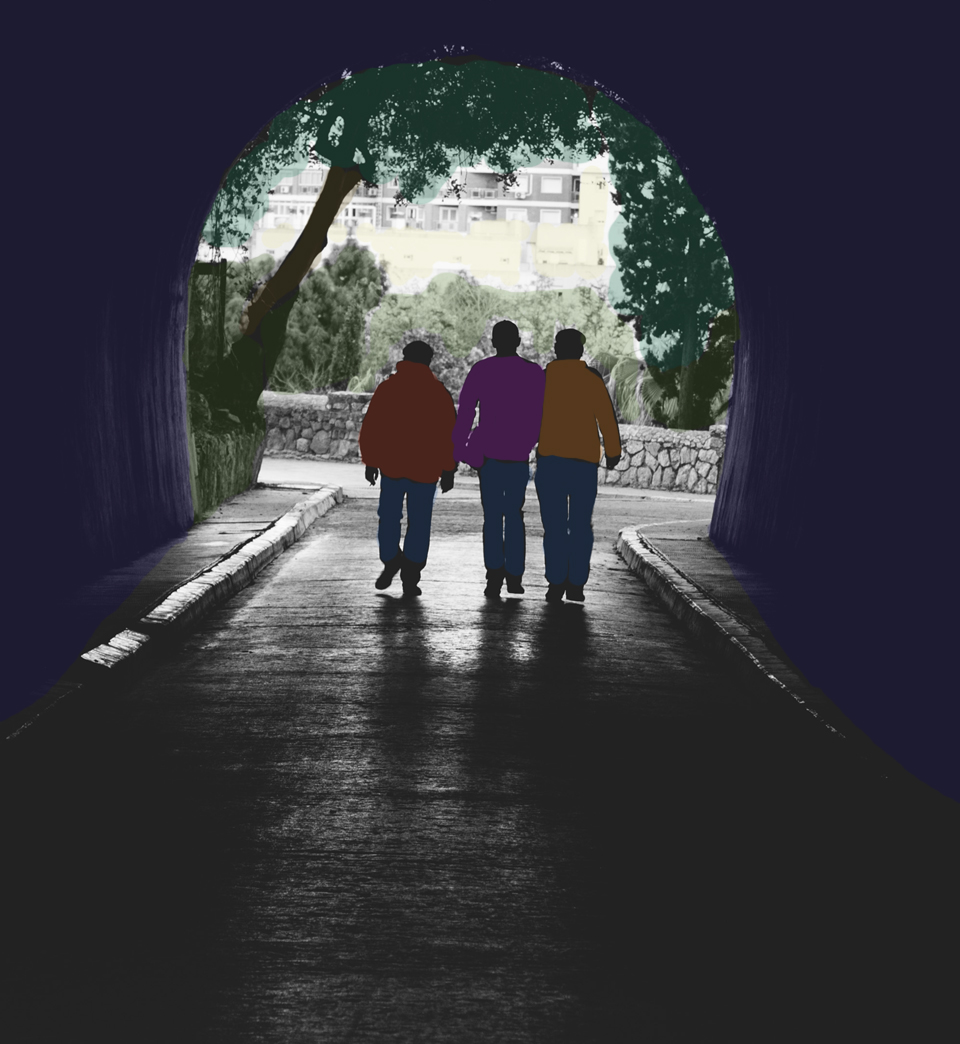
Date: Sep 12, 2016 07:30 PM - May 22, 2017 09:30 PM
Fee
CE Hours
Registration closes on Sep 01, 2016 12:00 PM
Activity Type
- Extended Education
Target Audience(s)
- Physicians
- Psychologists
- Marriage and Family Therapists
- Clinical Social Workers
Requirements for CE Credit
Registration closes on Sep 01, 2016
at 12:00 PM
Registration Closed
Speaker(s)/Author(s)
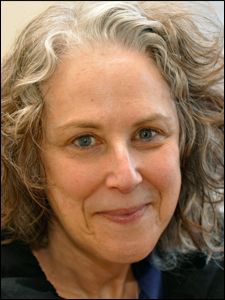
|
Beth Barmack, LCSW Brief Bio : Beth Barmack, LCSW, is a psychoanalyst member of the C.G. Jung Institute of San Francisco where she teaches and supervises in the training program. She has trained in Tavistock infant observation and authored an article published in the June 2010 issue of the Journal of Analytic Psychology on infant observation and the transcendent function. She practices in San Francisco where she sees adolescents, adults, and couples. |
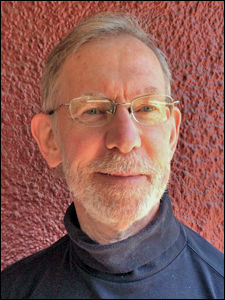
|
Mark Sullivan , PhD, MFT Brief Bio : Mark Sullivan, PhD, MFT is an analyst member of the C.G. Jung Institute of San Francisco where he teaches in the analyst training program, the program for professionals and public programs. He has published in the Journal of Analytic Psychology on analysis and initiation, as well as in The San Francisco Library Journal now Jung Journal: Culture and Psyche. Dr. Sullivan practices in Oakland, Calif., where he sees individual adults, children adolescents and couples. |
CE Hours
Location
Registration closes on Sep 01, 2016
at 12:00 PM
Registration Closed
SEMINAR ONE
Speaker(s)/Author(s)

|
Mark Sullivan , PhD, MFT Brief Bio : Mark Sullivan, PhD, MFT is an analyst member of the C.G. Jung Institute of San Francisco where he teaches in the analyst training program, the program for professionals and public programs. He has published in the Journal of Analytic Psychology on analysis and initiation, as well as in The San Francisco Library Journal now Jung Journal: Culture and Psyche. Dr. Sullivan practices in Oakland, Calif., where he sees individual adults, children adolescents and couples. |
CE Hours
Location
Registration closes on Sep 01, 2016
at 12:00 PM
Registration Closed
SEMINAR 1.2
Speaker(s)/Author(s)

|
Mark Sullivan , PhD, MFT Brief Bio : Mark Sullivan, PhD, MFT is an analyst member of the C.G. Jung Institute of San Francisco where he teaches in the analyst training program, the program for professionals and public programs. He has published in the Journal of Analytic Psychology on analysis and initiation, as well as in The San Francisco Library Journal now Jung Journal: Culture and Psyche. Dr. Sullivan practices in Oakland, Calif., where he sees individual adults, children adolescents and couples. |
CE Hours
Location
Registration closes on Sep 01, 2016
at 12:00 PM
Registration Closed
Speaker(s)/Author(s)

|
Mark Sullivan , PhD, MFT Brief Bio : Mark Sullivan, PhD, MFT is an analyst member of the C.G. Jung Institute of San Francisco where he teaches in the analyst training program, the program for professionals and public programs. He has published in the Journal of Analytic Psychology on analysis and initiation, as well as in The San Francisco Library Journal now Jung Journal: Culture and Psyche. Dr. Sullivan practices in Oakland, Calif., where he sees individual adults, children adolescents and couples. |
CE Hours
Location
Registration closes on Sep 01, 2016
at 12:00 PM
Registration Closed
Speaker(s)/Author(s)
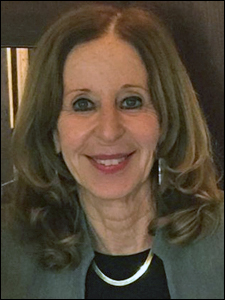
|
Betsy Cohen , PhD Brief Bio : Betsy Cohen, PhD is an analyst member of the C.G. Jung Institute of San Francisco. She teaches in the analytic training program and public programs. She is the author of The Snow White Syndrome: All About Envy and articles in Jung Journal: Culture and Psyche including, "The Intimate Self-Disclosure," Emmanuel Levinas and Depth Psychotherapy," and "Jung's Answer to Jews." Her current interest is bringing ancient biblical wisdom and a small amount of Plato to contemporary psychoanalysis. |
CE Hours
Location
Registration Closed
CE Hours
Registration closes on Sep 01, 2016
at 12:00 PM
Registration Closed
SEMINAR TWO
Speaker(s)/Author(s)
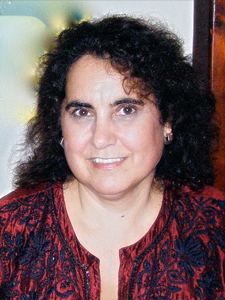
|
Maria Ellen Chiaia
Brief Bio : Maria Ellen Chiaia, Ph.D. is an Adult and Child analyst of the C.G. Jung Institute in private practice in Berkeley and Marin. She is a clinical and teaching member of the International Society for Sandplay Therapy. She is co-author of Sandplay in Three Voices: Images, Relationship, the Numinous, has been a key note speaker at a number of conferences and has authored many articles and book chapters. |
CE Hours
Location
Registration closes on Sep 01, 2016
at 12:00 PM
Registration Closed
Speaker(s)/Author(s)

|
Maria Ellen Chiaia
Brief Bio : Maria Ellen Chiaia, Ph.D. is an Adult and Child analyst of the C.G. Jung Institute in private practice in Berkeley and Marin. She is a clinical and teaching member of the International Society for Sandplay Therapy. She is co-author of Sandplay in Three Voices: Images, Relationship, the Numinous, has been a key note speaker at a number of conferences and has authored many articles and book chapters. |
CE Hours
Location
Registration closes on Sep 01, 2016
at 12:00 PM
Registration Closed
Speaker(s)/Author(s)

|
Maria Ellen Chiaia
Brief Bio : Maria Ellen Chiaia, Ph.D. is an Adult and Child analyst of the C.G. Jung Institute in private practice in Berkeley and Marin. She is a clinical and teaching member of the International Society for Sandplay Therapy. She is co-author of Sandplay in Three Voices: Images, Relationship, the Numinous, has been a key note speaker at a number of conferences and has authored many articles and book chapters. |
CE Hours
Location
Registration closes on Sep 01, 2016
at 12:00 PM
Registration Closed
Speaker(s)/Author(s)

|
Maria Ellen Chiaia
Brief Bio : Maria Ellen Chiaia, Ph.D. is an Adult and Child analyst of the C.G. Jung Institute in private practice in Berkeley and Marin. She is a clinical and teaching member of the International Society for Sandplay Therapy. She is co-author of Sandplay in Three Voices: Images, Relationship, the Numinous, has been a key note speaker at a number of conferences and has authored many articles and book chapters. |
CE Hours
Location
Registration Closed
Speaker(s)/Author(s)

|
Maria Ellen Chiaia
Brief Bio : Maria Ellen Chiaia, Ph.D. is an Adult and Child analyst of the C.G. Jung Institute in private practice in Berkeley and Marin. She is a clinical and teaching member of the International Society for Sandplay Therapy. She is co-author of Sandplay in Three Voices: Images, Relationship, the Numinous, has been a key note speaker at a number of conferences and has authored many articles and book chapters. |
CE Hours
Registration closes on Sep 01, 2016
at 12:00 PM
Registration Closed
SEMINAR THREE
Speaker(s)/Author(s)
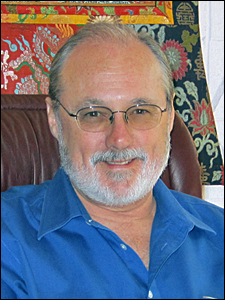
|
Bryan Wittine, PhD, MFT Brief Bio : Bryan Wittine, PhD, LMFT, is a Jungian psychoanalyst in private practice in Marin County where he consults with therapists on depth psychology and spirituality. A student of mystical traditions for 45 years, Dr. Wittine has lectured and taught extensively in academic and religious settings and was co-founder and former chair of the graduate program in transpersonal psychology at John F. Kennedy University. |
CE Hours
Location
Registration closes on Sep 01, 2016
at 12:00 PM
Registration Closed
SEMINAR 3.2
Speaker(s)/Author(s)

|
Bryan Wittine, PhD, MFT Brief Bio : Bryan Wittine, PhD, LMFT, is a Jungian psychoanalyst in private practice in Marin County where he consults with therapists on depth psychology and spirituality. A student of mystical traditions for 45 years, Dr. Wittine has lectured and taught extensively in academic and religious settings and was co-founder and former chair of the graduate program in transpersonal psychology at John F. Kennedy University. |
CE Hours
Location
Registration closes on Sep 01, 2016
at 12:00 PM
Registration Closed
SEMINAR 3.3
Speaker(s)/Author(s)

|
Bryan Wittine, PhD, MFT Brief Bio : Bryan Wittine, PhD, LMFT, is a Jungian psychoanalyst in private practice in Marin County where he consults with therapists on depth psychology and spirituality. A student of mystical traditions for 45 years, Dr. Wittine has lectured and taught extensively in academic and religious settings and was co-founder and former chair of the graduate program in transpersonal psychology at John F. Kennedy University. |
CE Hours
Location
Registration closes on Sep 01, 2016
at 12:00 PM
Registration Closed
SEMINAR 3.4
Speaker(s)/Author(s)

|
Bryan Wittine, PhD, MFT Brief Bio : Bryan Wittine, PhD, LMFT, is a Jungian psychoanalyst in private practice in Marin County where he consults with therapists on depth psychology and spirituality. A student of mystical traditions for 45 years, Dr. Wittine has lectured and taught extensively in academic and religious settings and was co-founder and former chair of the graduate program in transpersonal psychology at John F. Kennedy University. |
CE Hours
Location
Registration Closed
Speaker(s)/Author(s)

|
Bryan Wittine, PhD, MFT Brief Bio : Bryan Wittine, PhD, LMFT, is a Jungian psychoanalyst in private practice in Marin County where he consults with therapists on depth psychology and spirituality. A student of mystical traditions for 45 years, Dr. Wittine has lectured and taught extensively in academic and religious settings and was co-founder and former chair of the graduate program in transpersonal psychology at John F. Kennedy University. |
CE Hours
Registration closes on Sep 01, 2016
at 12:00 PM
Registration Closed
Speaker(s)/Author(s)

|
Mark Sullivan , PhD, MFT Brief Bio : Mark Sullivan, PhD, MFT is an analyst member of the C.G. Jung Institute of San Francisco where he teaches in the analyst training program, the program for professionals and public programs. He has published in the Journal of Analytic Psychology on analysis and initiation, as well as in The San Francisco Library Journal now Jung Journal: Culture and Psyche. Dr. Sullivan practices in Oakland, Calif., where he sees individual adults, children adolescents and couples. |

|
Beth Barmack, LCSW Brief Bio : Beth Barmack, LCSW, is a psychoanalyst member of the C.G. Jung Institute of San Francisco where she teaches and supervises in the training program. She has trained in Tavistock infant observation and authored an article published in the June 2010 issue of the Journal of Analytic Psychology on infant observation and the transcendent function. She practices in San Francisco where she sees adolescents, adults, and couples. |
CE Hours
Location
Registration closes on Sep 01, 2016
at 12:00 PM
Registration Closed
SEMINAR 4.1
Speaker(s)/Author(s)
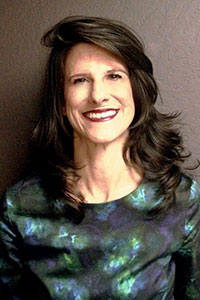
|
Helen Marlo , PhD Brief Bio : Helen Marlo, PhD, an analyst member of the C.G. Jung Institute of San Francisco and licensed clinical psychologist, works with adults, children, and infants in her San Mateo private practice. She is Chair of the Clinical Psychology Department at Notre Dame de Namur University where she is a full Professor. She serves as Reviews Editor for Jung Journal: Culture and Psyche. |
CE Hours
Location
Registration closes on Sep 01, 2016
at 12:00 PM
Registration Closed
SEMINAR 4.2
Speaker(s)/Author(s)

|
Helen Marlo , PhD Brief Bio : Helen Marlo, PhD, an analyst member of the C.G. Jung Institute of San Francisco and licensed clinical psychologist, works with adults, children, and infants in her San Mateo private practice. She is Chair of the Clinical Psychology Department at Notre Dame de Namur University where she is a full Professor. She serves as Reviews Editor for Jung Journal: Culture and Psyche. |
CE Hours
Registration closes on Sep 01, 2016
at 12:00 PM
Registration Closed
SEMINAR 4.3
Speaker(s)/Author(s)

|
Helen Marlo , PhD Brief Bio : Helen Marlo, PhD, an analyst member of the C.G. Jung Institute of San Francisco and licensed clinical psychologist, works with adults, children, and infants in her San Mateo private practice. She is Chair of the Clinical Psychology Department at Notre Dame de Namur University where she is a full Professor. She serves as Reviews Editor for Jung Journal: Culture and Psyche. |
CE Hours
Registration closes on Sep 01, 2016
at 12:00 PM
Registration Closed
SEMINAR 4.4
Speaker(s)/Author(s)

|
Helen Marlo , PhD Brief Bio : Helen Marlo, PhD, an analyst member of the C.G. Jung Institute of San Francisco and licensed clinical psychologist, works with adults, children, and infants in her San Mateo private practice. She is Chair of the Clinical Psychology Department at Notre Dame de Namur University where she is a full Professor. She serves as Reviews Editor for Jung Journal: Culture and Psyche. |
CE Hours
Location
Registration Closed
Speaker(s)/Author(s)

|
Helen Marlo , PhD Brief Bio : Helen Marlo, PhD, an analyst member of the C.G. Jung Institute of San Francisco and licensed clinical psychologist, works with adults, children, and infants in her San Mateo private practice. She is Chair of the Clinical Psychology Department at Notre Dame de Namur University where she is a full Professor. She serves as Reviews Editor for Jung Journal: Culture and Psyche. |
CE Hours
Registration closes on Sep 01, 2016
at 12:00 PM
Registration Closed
SEMINAR 5.1
Speaker(s)/Author(s)
|
Seth Robbins, MD, PhD
Brief Bio : Seth W. Robbins, MD is a psychiatrist and Jungian analyst in private practice in San Francisco and Berkeley. |
CE Hours
Location
Registration closes on Sep 01, 2016
at 12:00 PM
Registration Closed
SEMINAR 5.2
Speaker(s)/Author(s)
|
Seth Robbins, MD, PhD
Brief Bio : Seth W. Robbins, MD is a psychiatrist and Jungian analyst in private practice in San Francisco and Berkeley. |
CE Hours
Registration closes on Sep 01, 2016
at 12:00 PM
Registration Closed
SEMINAR 5.3
Speaker(s)/Author(s)
|
Seth Robbins, MD, PhD
Brief Bio : Seth W. Robbins, MD is a psychiatrist and Jungian analyst in private practice in San Francisco and Berkeley. |
CE Hours
Registration closes on Sep 01, 2016
at 12:00 PM
Registration Closed
SEMINAR 5.4
Speaker(s)/Author(s)
|
Seth Robbins, MD, PhD
Brief Bio : Seth W. Robbins, MD is a psychiatrist and Jungian analyst in private practice in San Francisco and Berkeley. |
CE Hours
Registration Closed
Speaker(s)/Author(s)
|
Seth Robbins, MD, PhD
Brief Bio : Seth W. Robbins, MD is a psychiatrist and Jungian analyst in private practice in San Francisco and Berkeley. |
CE Hours
Registration closes on Sep 01, 2016
at 12:00 PM
Registration Closed
Speaker(s)/Author(s)

|
Beth Barmack, LCSW Brief Bio : Beth Barmack, LCSW, is a psychoanalyst member of the C.G. Jung Institute of San Francisco where she teaches and supervises in the training program. She has trained in Tavistock infant observation and authored an article published in the June 2010 issue of the Journal of Analytic Psychology on infant observation and the transcendent function. She practices in San Francisco where she sees adolescents, adults, and couples. |

|
Mark Sullivan , PhD, MFT Brief Bio : Mark Sullivan, PhD, MFT is an analyst member of the C.G. Jung Institute of San Francisco where he teaches in the analyst training program, the program for professionals and public programs. He has published in the Journal of Analytic Psychology on analysis and initiation, as well as in The San Francisco Library Journal now Jung Journal: Culture and Psyche. Dr. Sullivan practices in Oakland, Calif., where he sees individual adults, children adolescents and couples. |
CE Hours
Registration closes on Sep 01, 2016
at 12:00 PM
Registration Closed
SEMINAR 6.1
Speaker(s)/Author(s)
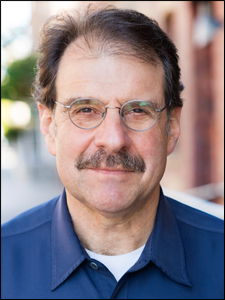
|
Steve Zemmelman , MSW, PhD Brief Bio : Steve Zemmelman, PhD is a Jungian psychoanalyst working with children, adults and couples in Berkeley and San Francisco. Dr. Zemmelman is an Associate Clinical Professor in the Department of Psychiatry at UCSF, a core faculty member at The Sanville Institute for Clinical Social Work and Psychotherapy, adjunct professor at Pacifica Graduate Institute, and a supervisor at The Psychotherapy Institute in Berkeley. He has taught and published papers on a range of topics including transference, attachment, the archetype of initiation, Jewish mysticism, Freud and Jung, suicide, joint custody, mediation, and the Coen brothers. He serves as chair of the Extended Education program at the C.G. Jung Institute of San Francisco. |
CE Hours
Location
Registration closes on Sep 01, 2016
at 12:00 PM
Registration Closed
SEMINAR 6.2
Speaker(s)/Author(s)

|
Steve Zemmelman , MSW, PhD Brief Bio : Steve Zemmelman, PhD is a Jungian psychoanalyst working with children, adults and couples in Berkeley and San Francisco. Dr. Zemmelman is an Associate Clinical Professor in the Department of Psychiatry at UCSF, a core faculty member at The Sanville Institute for Clinical Social Work and Psychotherapy, adjunct professor at Pacifica Graduate Institute, and a supervisor at The Psychotherapy Institute in Berkeley. He has taught and published papers on a range of topics including transference, attachment, the archetype of initiation, Jewish mysticism, Freud and Jung, suicide, joint custody, mediation, and the Coen brothers. He serves as chair of the Extended Education program at the C.G. Jung Institute of San Francisco. |
CE Hours
Registration closes on Sep 01, 2016
at 12:00 PM
Registration Closed
SEMINAR 6.3
Speaker(s)/Author(s)

|
Steve Zemmelman , MSW, PhD Brief Bio : Steve Zemmelman, PhD is a Jungian psychoanalyst working with children, adults and couples in Berkeley and San Francisco. Dr. Zemmelman is an Associate Clinical Professor in the Department of Psychiatry at UCSF, a core faculty member at The Sanville Institute for Clinical Social Work and Psychotherapy, adjunct professor at Pacifica Graduate Institute, and a supervisor at The Psychotherapy Institute in Berkeley. He has taught and published papers on a range of topics including transference, attachment, the archetype of initiation, Jewish mysticism, Freud and Jung, suicide, joint custody, mediation, and the Coen brothers. He serves as chair of the Extended Education program at the C.G. Jung Institute of San Francisco. |
CE Hours
Registration closes on Sep 01, 2016
at 12:00 PM
Registration Closed
SEMINAR 6.4
Speaker(s)/Author(s)

|
Steve Zemmelman , MSW, PhD Brief Bio : Steve Zemmelman, PhD is a Jungian psychoanalyst working with children, adults and couples in Berkeley and San Francisco. Dr. Zemmelman is an Associate Clinical Professor in the Department of Psychiatry at UCSF, a core faculty member at The Sanville Institute for Clinical Social Work and Psychotherapy, adjunct professor at Pacifica Graduate Institute, and a supervisor at The Psychotherapy Institute in Berkeley. He has taught and published papers on a range of topics including transference, attachment, the archetype of initiation, Jewish mysticism, Freud and Jung, suicide, joint custody, mediation, and the Coen brothers. He serves as chair of the Extended Education program at the C.G. Jung Institute of San Francisco. |
CE Hours
Registration Closed
Speaker(s)/Author(s)

|
Steve Zemmelman , MSW, PhD Brief Bio : Steve Zemmelman, PhD is a Jungian psychoanalyst working with children, adults and couples in Berkeley and San Francisco. Dr. Zemmelman is an Associate Clinical Professor in the Department of Psychiatry at UCSF, a core faculty member at The Sanville Institute for Clinical Social Work and Psychotherapy, adjunct professor at Pacifica Graduate Institute, and a supervisor at The Psychotherapy Institute in Berkeley. He has taught and published papers on a range of topics including transference, attachment, the archetype of initiation, Jewish mysticism, Freud and Jung, suicide, joint custody, mediation, and the Coen brothers. He serves as chair of the Extended Education program at the C.G. Jung Institute of San Francisco. |
CE Hours
Registration closes on Sep 01, 2016
at 12:00 PM
Registration Closed
SEMINAR 7.1
Speaker(s)/Author(s)

|
Beth Barmack, LCSW Brief Bio : Beth Barmack, LCSW, is a psychoanalyst member of the C.G. Jung Institute of San Francisco where she teaches and supervises in the training program. She has trained in Tavistock infant observation and authored an article published in the June 2010 issue of the Journal of Analytic Psychology on infant observation and the transcendent function. She practices in San Francisco where she sees adolescents, adults, and couples. |

|
Betsy Cohen , PhD Brief Bio : Betsy Cohen, PhD is an analyst member of the C.G. Jung Institute of San Francisco. She teaches in the analytic training program and public programs. She is the author of The Snow White Syndrome: All About Envy and articles in Jung Journal: Culture and Psyche including, "The Intimate Self-Disclosure," Emmanuel Levinas and Depth Psychotherapy," and "Jung's Answer to Jews." Her current interest is bringing ancient biblical wisdom and a small amount of Plato to contemporary psychoanalysis. |
CE Hours
Location
Registration closes on Sep 01, 2016
at 12:00 PM
Registration Closed
SEMINAR 7.2
Speaker(s)/Author(s)

|
Beth Barmack, LCSW Brief Bio : Beth Barmack, LCSW, is a psychoanalyst member of the C.G. Jung Institute of San Francisco where she teaches and supervises in the training program. She has trained in Tavistock infant observation and authored an article published in the June 2010 issue of the Journal of Analytic Psychology on infant observation and the transcendent function. She practices in San Francisco where she sees adolescents, adults, and couples. |

|
Betsy Cohen , PhD Brief Bio : Betsy Cohen, PhD is an analyst member of the C.G. Jung Institute of San Francisco. She teaches in the analytic training program and public programs. She is the author of The Snow White Syndrome: All About Envy and articles in Jung Journal: Culture and Psyche including, "The Intimate Self-Disclosure," Emmanuel Levinas and Depth Psychotherapy," and "Jung's Answer to Jews." Her current interest is bringing ancient biblical wisdom and a small amount of Plato to contemporary psychoanalysis. |
CE Hours
Registration closes on Sep 01, 2016
at 12:00 PM
Registration Closed
SEMINAR 7.3
Speaker(s)/Author(s)

|
Beth Barmack, LCSW Brief Bio : Beth Barmack, LCSW, is a psychoanalyst member of the C.G. Jung Institute of San Francisco where she teaches and supervises in the training program. She has trained in Tavistock infant observation and authored an article published in the June 2010 issue of the Journal of Analytic Psychology on infant observation and the transcendent function. She practices in San Francisco where she sees adolescents, adults, and couples. |

|
Betsy Cohen , PhD Brief Bio : Betsy Cohen, PhD is an analyst member of the C.G. Jung Institute of San Francisco. She teaches in the analytic training program and public programs. She is the author of The Snow White Syndrome: All About Envy and articles in Jung Journal: Culture and Psyche including, "The Intimate Self-Disclosure," Emmanuel Levinas and Depth Psychotherapy," and "Jung's Answer to Jews." Her current interest is bringing ancient biblical wisdom and a small amount of Plato to contemporary psychoanalysis. |
CE Hours
Registration Closed
Speaker(s)/Author(s)

|
Beth Barmack, LCSW Brief Bio : Beth Barmack, LCSW, is a psychoanalyst member of the C.G. Jung Institute of San Francisco where she teaches and supervises in the training program. She has trained in Tavistock infant observation and authored an article published in the June 2010 issue of the Journal of Analytic Psychology on infant observation and the transcendent function. She practices in San Francisco where she sees adolescents, adults, and couples. |

|
Betsy Cohen , PhD Brief Bio : Betsy Cohen, PhD is an analyst member of the C.G. Jung Institute of San Francisco. She teaches in the analytic training program and public programs. She is the author of The Snow White Syndrome: All About Envy and articles in Jung Journal: Culture and Psyche including, "The Intimate Self-Disclosure," Emmanuel Levinas and Depth Psychotherapy," and "Jung's Answer to Jews." Her current interest is bringing ancient biblical wisdom and a small amount of Plato to contemporary psychoanalysis. |
CE Hours
Registration closes on Sep 01, 2016
at 12:00 PM
Registration Closed
SEMINAR 7.4
Speaker(s)/Author(s)

|
Beth Barmack, LCSW Brief Bio : Beth Barmack, LCSW, is a psychoanalyst member of the C.G. Jung Institute of San Francisco where she teaches and supervises in the training program. She has trained in Tavistock infant observation and authored an article published in the June 2010 issue of the Journal of Analytic Psychology on infant observation and the transcendent function. She practices in San Francisco where she sees adolescents, adults, and couples. |

|
Betsy Cohen , PhD Brief Bio : Betsy Cohen, PhD is an analyst member of the C.G. Jung Institute of San Francisco. She teaches in the analytic training program and public programs. She is the author of The Snow White Syndrome: All About Envy and articles in Jung Journal: Culture and Psyche including, "The Intimate Self-Disclosure," Emmanuel Levinas and Depth Psychotherapy," and "Jung's Answer to Jews." Her current interest is bringing ancient biblical wisdom and a small amount of Plato to contemporary psychoanalysis. |
CE Hours
Location
Registration closes on Sep 01, 2016
at 12:00 PM
Registration Closed
Speaker(s)/Author(s)

|
Beth Barmack, LCSW Brief Bio : Beth Barmack, LCSW, is a psychoanalyst member of the C.G. Jung Institute of San Francisco where she teaches and supervises in the training program. She has trained in Tavistock infant observation and authored an article published in the June 2010 issue of the Journal of Analytic Psychology on infant observation and the transcendent function. She practices in San Francisco where she sees adolescents, adults, and couples. |

|
Mark Sullivan , PhD, MFT Brief Bio : Mark Sullivan, PhD, MFT is an analyst member of the C.G. Jung Institute of San Francisco where he teaches in the analyst training program, the program for professionals and public programs. He has published in the Journal of Analytic Psychology on analysis and initiation, as well as in The San Francisco Library Journal now Jung Journal: Culture and Psyche. Dr. Sullivan practices in Oakland, Calif., where he sees individual adults, children adolescents and couples. |
